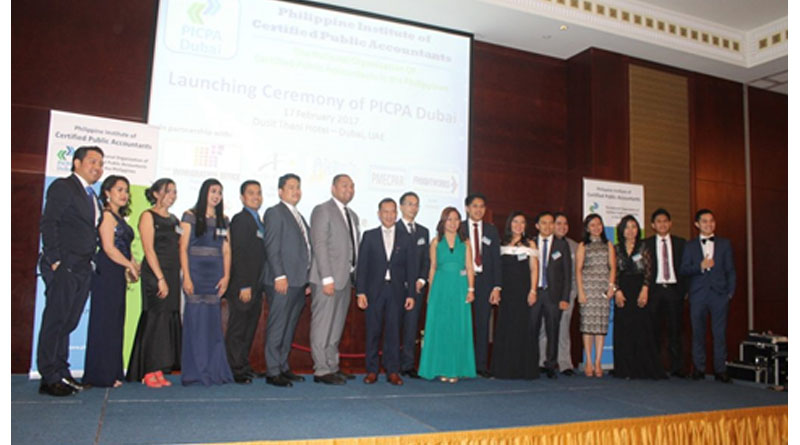Pinoy Accountants Prep Up for VAT’s Implementation in 2018

Anticipating changes in the system enabling businesses to fit into the new requirements as the UAE, as well as GCC governments, start implementing value added tax (VAT) next year, the 450-member strong Dubai chapter of the Philippine Institute of Certified Public Accountants (PICPA) is currently in the thick of preparations to remain abreast with the developments once the move takes effect.
This, even as an official of the tax consultancy and auditing firm, Deloitte, at a recent PICPA re-launch, said VAT is not something can be put off “because technically, it’s not the tax authorities that need to be ready for this, it’s the businesses.”
“Businesses need to be getting ready now. We need to assume that 2018 starts today. The risk is too high if we think that either 2018 is not coming because it is, and secondly to think that we can put this off because technically it’s not the tax authorities that need to be ready for this. It’s the businesses that need to be ready for this,” Marc Collenette, Deloitte manager for its Indirect Tax unit, said on the occasion of PICPA’s general assembly at Dusit Thani Dubai on Feb. 17.
Lyndon Magsino, PICPA Dubai president, for his part said VAT “is a hot topic among CPAs because there will be a lot of requirements in terms of reporting to the tax regulators.”
“A lot of new regulations need to be followed. In fact, the government is now drafting the regulations and is in the process of enhancing it,” he said
The Saudi cabinet has recently announced giving the Unified Agreement for Value Added Tax a nod. The Unified Agreement, previously referred to by the working title of a framework agreement, is an overarching agreement that will be concluded by all six GCC nations including the UAE.
“There will be changes that we need to be aware of in the accounting level. The accounting system of businesses that should be used should fit in the requirements,” explained Angelito Catacutan, senior vice president of the Filipino accountants’ group..
Catacutan added that consumers also need to be educated on the implications and impacts of VAT and a series of awareness campaigns must also take place before 2018.
“VAT was introduced by World Bank to the GCC countries for the region to be competitive in the market. This is also a way for the government to earn income at the same time. Ultimately, it will be the consumers who will benefit in the implementation of VAT because the government will be able to have more infrastructure, more improved government services,” he said.
The UAE Minister of State for Financial Affairs, His Excellency Obaid Humaid Al Tayer, has stated that the UAE will implement VAT at the rate of five percent starting Jan. 1, 2018.
VAT is expected to be introduced with some limited exceptions including basic food items, healthcare and education, according to the law firm, PwC.
“The GCC member states are in the process of approving the long anticipated common framework for the introduction of a VAT system in the GCC. The common VAT framework will form the basis for the introduction of a national VAT system by each member state,” Said PwC.
“While there are a number of challenges that still need to be addressed before it is introduced, VAT will help governments to deliver on long-standing plans for economic diversification away from oil, while still being able to deliver social and economic programs,” it added.
(Source: FilipinoTimes.ae)



